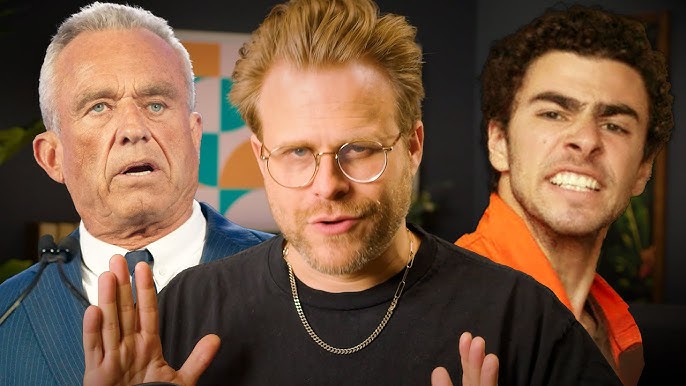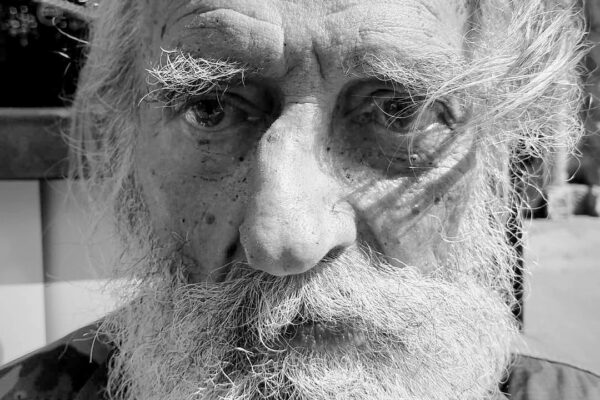America’s healthcare system is going to be the death of all of us yet. Not immediately, mind you, but slowly, methodically, like a Bond villain with a five-act plan. It’s not a knife-wielding maniac in the alleyway; it’s the polite nurse practitioner who takes your blood pressure, frowns, and tells you to come back in six months.
Now, I’m not close to signing out just yet, but my new primary care doctor is so convinced that I’m teetering on the brink that he had me sign a contract relieving him of all responsibility if I die from taking oxycodone. A contract. Like we were closing on a house, except the house is my mortality, and he just wants to make sure I don’t leave him with the property taxes.

You would swear he was a dealer worried about his recording business. And I tried to assure him that he wasn’t my dealer—just my latest healthcare provider from the medical group I’ve belonged to for a quarter of a century. It was his predecessor who last summer gave me a prescription for small-dose oxy, so I could occasionally get through a three-hour movie without grimacing in pain like I was being forced to watch a congressional hearing on C-SPAN.
And this pain? Oh, it’s been a saga. My knee problems are a direct result of half a dozen orthopedists who, over the past decade, have played an endless game of “Let’s Guess What’s Wrong.” Torn Achilles? Maybe. Chronic knee inflammation? Could be. A deep-seated vendetta from the gods of orthopedics? Very likely.
So last year, when I told my previous doctor that I couldn’t sit through a play, a concert, or even Sunday mass without shifting in my seat like a guilty defendant, he said, “Here, take 5 mg of oxycodone as needed.” I was ecstatic. Finally, I had a solution that didn’t involve prayer, incantations, or learning how to live with pain like some medieval monk.
Then, at the end of the year, I switched doctors. (That’s another story involving bureaucratic musical chairs, insurance red tape, and the general chaos of American healthcare.) When I requested a refill of my oxy, my new doctor reacted as if I had asked him to sign a permission slip for me to skydive blindfolded into a volcano.
Emails flooded my inbox. Did I know that people my age who take opioids are at risk of falling? Did I understand that a fall could lead to a broken hip? And did I realize that a broken hip was basically a one-way ticket to The Great Beyond?
And then came the contract. It was multiple pages long, filled with legalese that basically boiled down to this: “If you die, it’s not my fault. If you fall, it’s not my fault. If you take this medication and turn into an opioid-addicted circus performer, it’s not my fault.”
I assured him I was well aware of the dangers of opioids. I had written too many stories about such tragedies, including one about a young athlete who had competed against one of my sons and died of an overdose. That kid was a third my age—a sobering fact that I did not need my doctor to remind me of as I considered my own mortality every time I climbed a flight of stairs.
His suggestion? Physical therapy. Maybe see another orthopedic specialist. Sure, I said, I’ll do that. And then I explained what had happened the last time I tried that route. When I called to make an appointment for either, I was met with the standard, soulless cheerfulness of healthcare scheduling: “We can fit you in… in three months.”
I dutifully booked an appointment anyway, which I then couldn’t keep because I was off covering the presidential campaign.
“Couldn’t you plan ahead?” my doctor asked, like a tiny, judgmental emperor perched on his throne of medical authority.
“Yes, I could,” I said. “But the presidential candidates don’t consult me when scheduling their events.”
And, really, if anyone needs a doctor, it’s those candidates—the mental gymnastics alone must be exhausting.
I tried to explain to him that seeing patients all day, especially as many sick patients as I had seen in his waiting room, could leave anyone with the impression that people over 40 were just walking, talking obituaries-in-progress.
So I underwent my routine bloodwork. I provided my obligatory urine sample with the precision of a trained lab assistant. I returned for more tests. And, finally, I received my referrals for both an orthopedic specialist and physical therapy.
With any luck, I should be seen before the baseball All-Star game in July.
In the meantime, I’ll do what every responsible adult with a nagging health issue does: complain about it, occasionally stretch in ways that vaguely resemble exercise, and pray that modern medicine moves at a pace slightly faster than continental drift.
And if it doesn’t? Well, I’ll have plenty of time to practice my acceptance speech for “Patient Most Likely to Die Waiting for an Appointment.”
TONY CASTRO, the former award-winning Los Angeles columnist and author, is a writer-at-large and the national political writer for LAMonthly.org. His debut novel, THE BOOK OF MARILYN, has just been released. He can be reached at tony@tonycastro.com.





